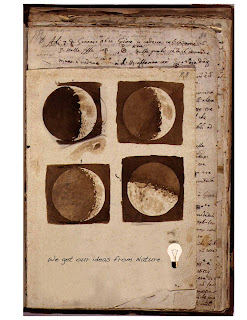Here's what I have, in the process of writing more: this is almost 1000 words. Let me know what can be improved.
The music industry, for most of modern industry, has been known for being a hit-maker, harnessing the power of recorded music, radio, television and film to make the unknown sensational. The answer was simple, big labels were good, they plucked musicians out of obscurity, put in the studio with their producer, told the radio played what we the public wanted to hear, and questions were few. That is no longer the case. Today, anybody can have a studio in their house and release their music under their terms. The meaning of ownership and the worth of music has changed. The power is back in the musicians’ hands. The ivory towers that major labels built with their rigid greed are slowly crumbling. They didn't adapt with the shifts of the people because they didn't know how to qualify ownership in a world of individuals that use the internet as a means of endless trade of free entertainment. Without the managers and producers that major labels insist their artists putting their hands into the making of records, music evolved beyond their control; in the hands of bedroom beat programmers with 4 tracks and mic. Companies didn't sign acts that they couldn't attach to statistical profit projections based off what they consider key markets - Country, Urban, and Rock. If there dared to be a department for Indie, it was for a longtime also responsible for Electronic because they didn't know what to do with it. They lost the plot. They took too long to decide how to approach winning the majority back, and lost real musicians forever.
One such example of the said shift in power is the concept of piracy. With modern technology, music can be digitalized and sent over the internet; whole albums can easily be downloaded to all and any who have the necessary technological ability. With such ease and convenience that follows piracy, it would be ridiculous to expect to create a large profit through album sales. In an effort to recoup their losses, the record labels took legal action, suing prominent pirates of music, gouging money from the biggest fans of the artists that the fans had been pirating from. Not surprisingly, studies show that piracy has only grown since; not only so, these lawsuits spawned so much bad press that the rate of piracy increased exponentially, while the record labels profits plummeted by a significant margin. Incidentally, the failures of the record labels begs another question, one that challenges the most basic assumptions about the foundations of profits in the music industry: Is free music, both in terms of prices and the ability to transfer the music from place to place, truly a negative force on the industry as a whole? Experiments such as the digitally downloadable release of Radiohead’s album In Rainbows, in which consumers did not pay a penny to obtain the album, prove that artists who release songs and cater to their fan base can make as much money as artists who concern themselves with prices and finances. In fact, Radiohead’s free album made more money than any previously released Radiohead album, through the great publicity and the influx of new customers who were willing to both buy older albums and go to live concerts.
Free, legally downloadable music like the album In Rainbows is also detrimental to the success of record labels. Traditionally, a garage band would practice at home hoping for a big deal in the form of a 45 minute slot at a local bar or café, slowly building a local reputation before getting discovered and getting a record deal. Now thanks to myspace music pages and similar social networking sites, its possible to become successful without the record deal. Although myspace bands such as Nightmare of You and Army of Freshmen signed onto a label eventually, Pogo, a talented Australian youth, enjoys much greater internet fame through his popular songs comprised of remixed movie sounds without any kind of record label. Transversely, this type of music would never have been taken seriously a century ago. Music, like art, is always changing and going through phases, and the music industry has to make sure it’s up to speed and keep up with the progressive nature of music.
So how kind of financial repercussions have hit record labels now that tangible CDs are going out of fashion in lieu of digital downloads? In 2005, companies like UMG and EMI have reported 5-6% profit. Of that profit, artists see about 3%. Major labels are struggling to reinvent themselves, but many wonder if its already too late. In 2000, U.S consumers bought 785.1 million albums; In 2006, they bought 588.2 million albums, 582 million in digital single, and purchased $600 million worth of ringtones. Digital media is an easy target to blame this failure upon, but the record companies also brought this upon themselves. The past few years have presented a fair number of opportunities, such as not addressing online piracy at its beginning, but they failed to take advantages of them. If they had made licensing deals with Napster, they would have reaped some of the profit of popular file-sharing services. But because Napster ultimately shut down, those millions of people found someplace else to download their music. In the end, people are still listening to as much music as ever: ipod sales are booming, concerts are selling out, and the music is out there. Labels have just repeatedly failed to turn the public’s interest into money, and their ineptitude will ultimately be their downfall.



